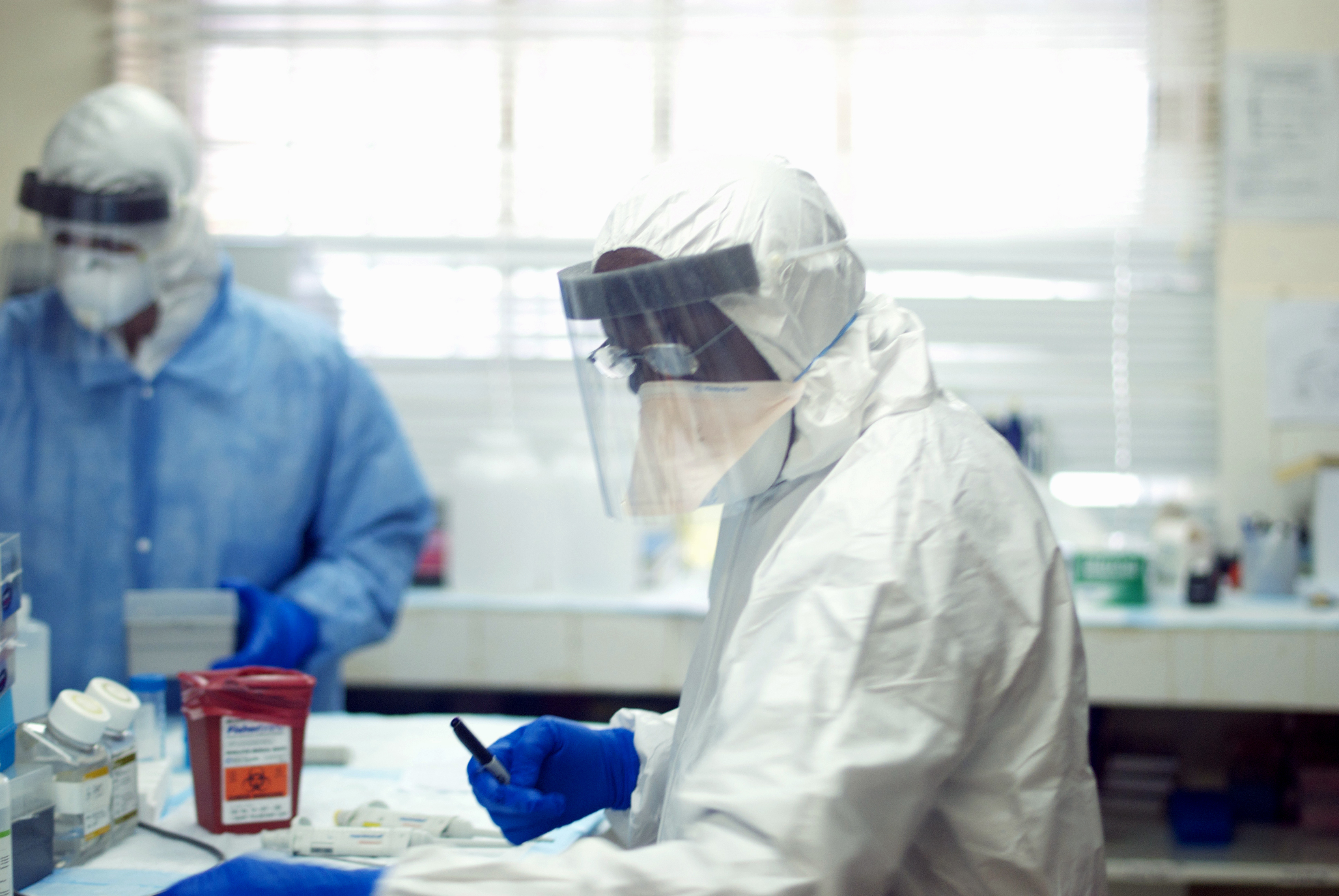Genetic studies of some of the earliest Ebola cases in Sierra Leone reveal more than 300 genetic changes in the virus as it leapt from person to person, changes that could blunt the effectiveness of diagnostic tests and experimental treatments now in development, researchers said on Thursday.
"We found the virus is doing what viruses do. It's mutating," said Pardis Sabeti of Harvard University and the Broad Institute, who led the massive study of samples from 78 people in Sierra Leone, all of whose infections could be traced to a faith healer whose claims of a cure attracted Ebola patients from Guinea, where the virus first took hold.
The findings, published in Science, suggest the virus is mutating quickly and in ways that could affect current diagnostics and future vaccines and treatments, such as GlaxoSmithKline's Ebola vaccine, which was just fast-tracked to begin clinical trials, or the antibody drug ZMapp, being developed by California biotech Mapp Biopharmaceutical.


















With your current subscription plan you can comment on stories. However, before writing your first comment, please create a display name in the Profile section of your subscriber account page.